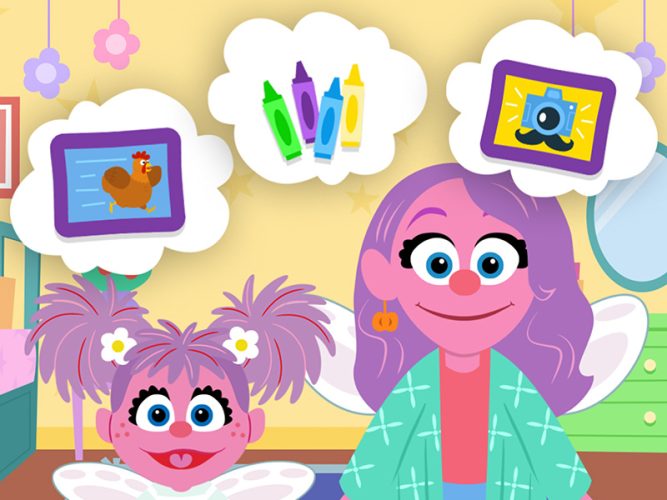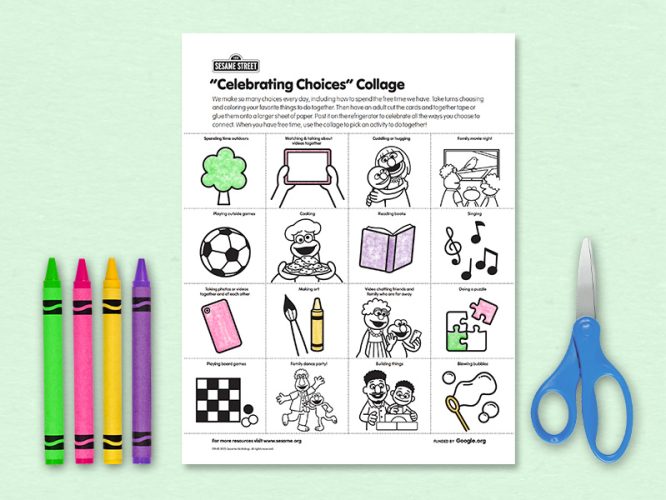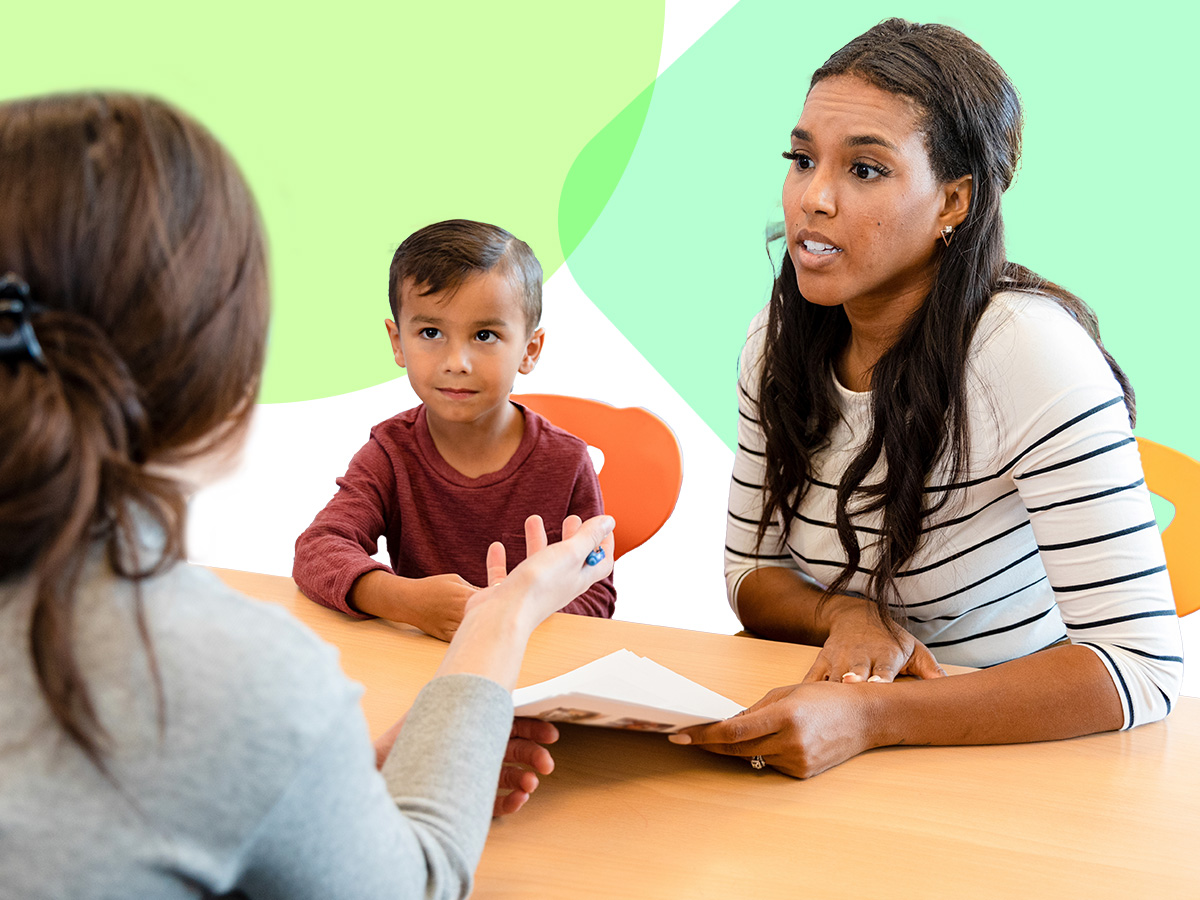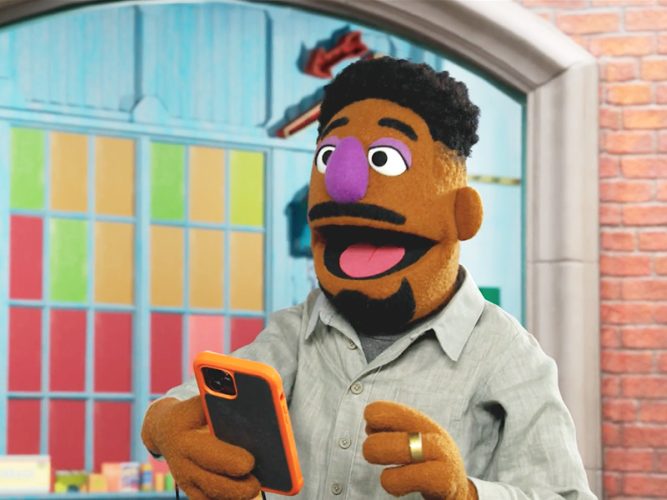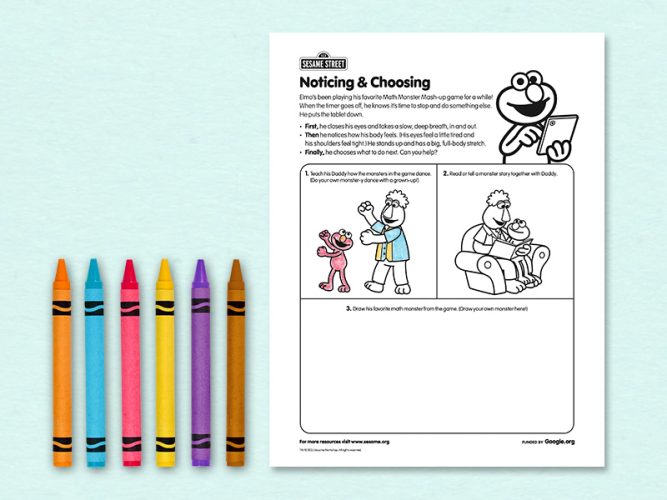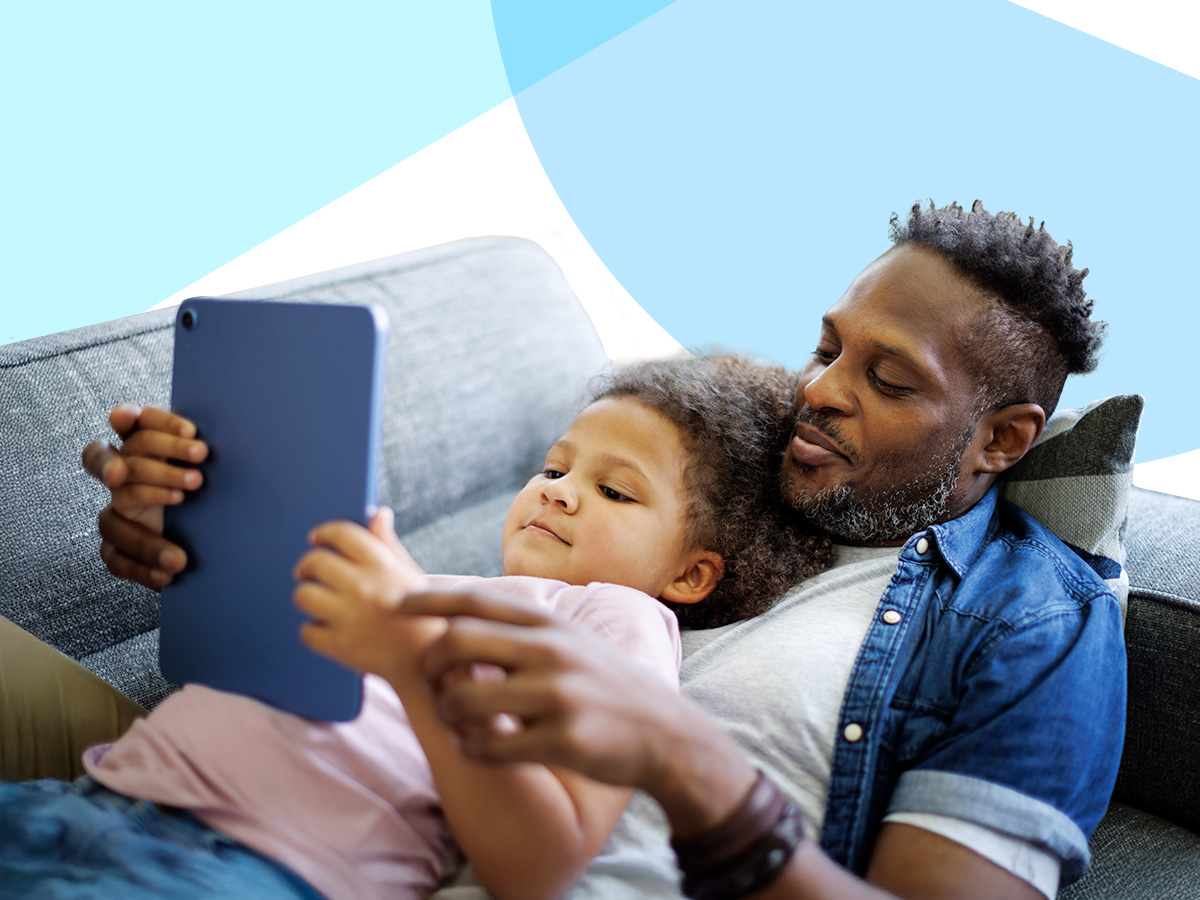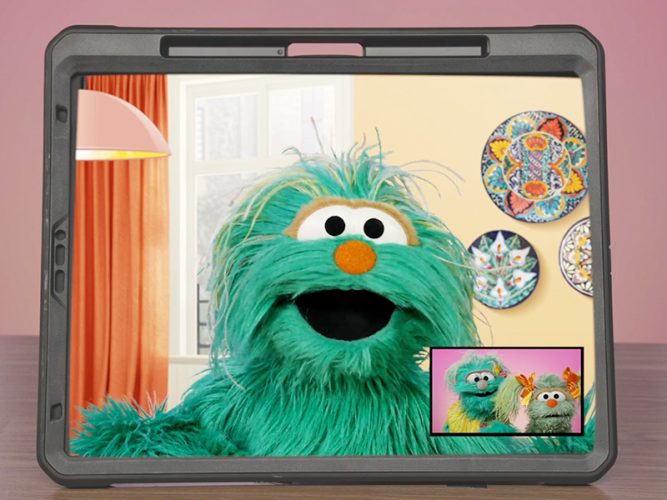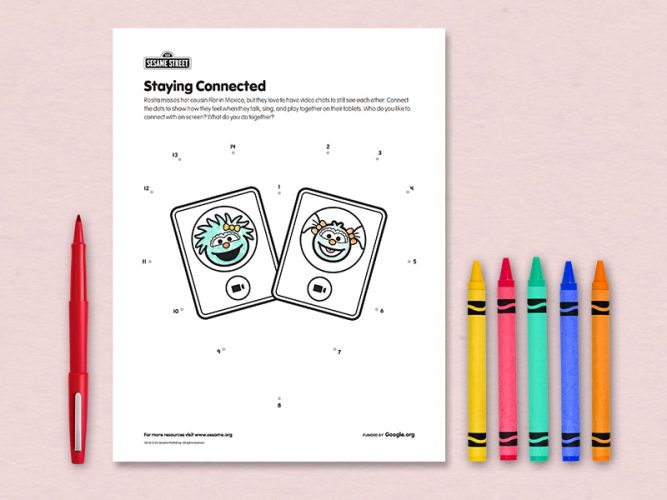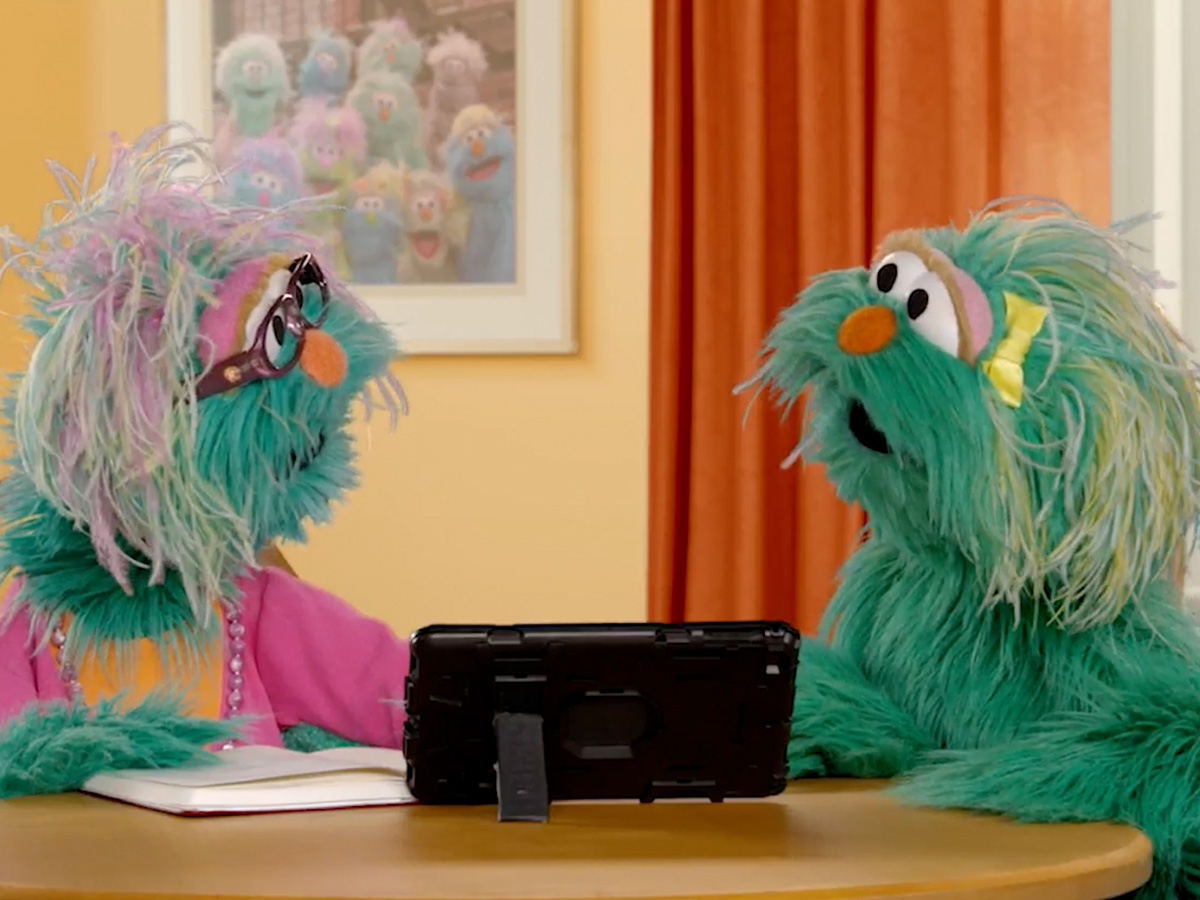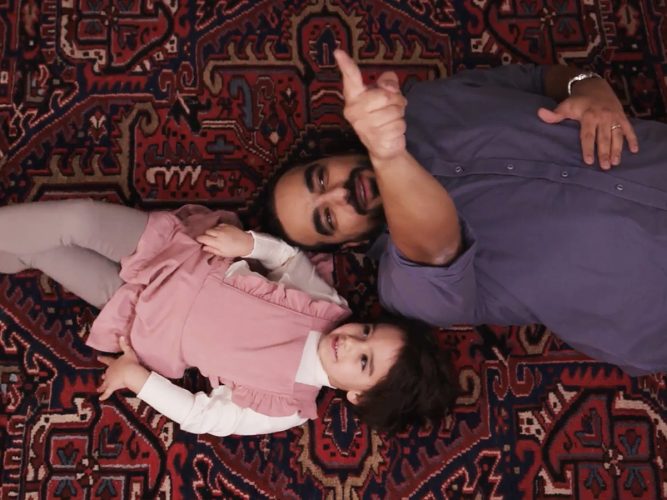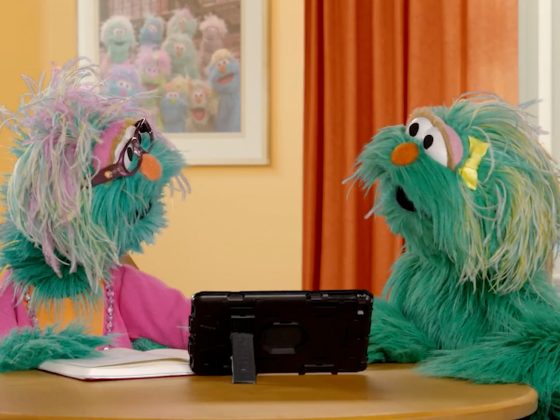
6 Habits for Using Digital Devices With Your Family (chock full of resources!)
Parenting is full of up and downs. The tantrums come with sweet make-up hugs. Cups thrown are followed by heartfelt apologies. Even technology brings up some interesting dilemmas — it can be as puzzling as it is helpful. It connects us, yet can be tough to disconnect from. But there are ways to be mindful about how and when to use it.
When considering how to manage children’s (and our own!) digital media use in realistic, healthy, balanced, and safe ways, it can help to think about healthy habits — just aslike we teach children good eating and sleeping habits. For digital well-being, “habits of mind” can help us create and practice healthy ways of using media.
The Sesame Street parents have been helping their little ones work on six habits to help navigate the challenges and excitement of a digital world.
1. C is for Choices: On and Off-Screen With Abby
When thinking about screens and how to use them best for our family, i. It can help to focus on the concept of choices.
Maggie and Abby practice decision-making using the C is For Choices game. After playing, you can also make a “Celebrating Choices” collage together using this printable.
And don’t miss this interview with Dr. Vikki Katz on Making Healthy Choices Around Digital Media.
2. Noticing How We Feel with Elmo and Wes
Elmo and Wes both love spending screen time together with their dads. Watch how they notice how it makes them feel.
Taking a moment to recognize that crick in your neck when you may have scrolled for longer than you meant to is just as important as taking a deep breath before hitting that perfect target in a game and getting a high score. Watch Elijah take notice and do something different in this video.
You can try it yourself with this printable.
Taking a moment to notice that your body feels stiff because you’ve been sitting for too long will help you make the next choice that’s right for you and your family. Read more in Mindful Choices: Using Digital Media with Awareness and Intention.
3. Connecting Like Rosita
Screens have helped the distances between us feel smaller through video calls, screen-sharing, and gameplay. Watch as Rosita and her family join a call to see her family in Mexico, after which she’s able to stay on for a few games with her cousin, Flor.
Help children complete this connect-the-dot picture to see how these video chats connect us.
4. Stop, Stretch, and Switch With Daniel, Samuel and Julia
No matter how much fun the next activity will be, transitions from screentime can be hard. But what if there were a way to combine family bonding with transitions to off-screen activities? For example, Julia and Samuel’s dad, Daniel, connects in-game characters, like a squirrel made of pixels, with squirrels you can see “in-the-fluff” outside!
Stopping gives us a moment to check in with how we feel, stretching gets our bodies into movement and, finally, switching gives us an opportunity to move on to the next thing we need to do.
And watch Rudy’s stepmom Maggie as she expertly Brings the Energy and helps Rudy put down his show after they’re finished at the laundromat.
Transitions are tricky for everyone. Check out the Stop! Stretch! Switch printable for more info before diving into the Soothing without Screens article for more ideas.
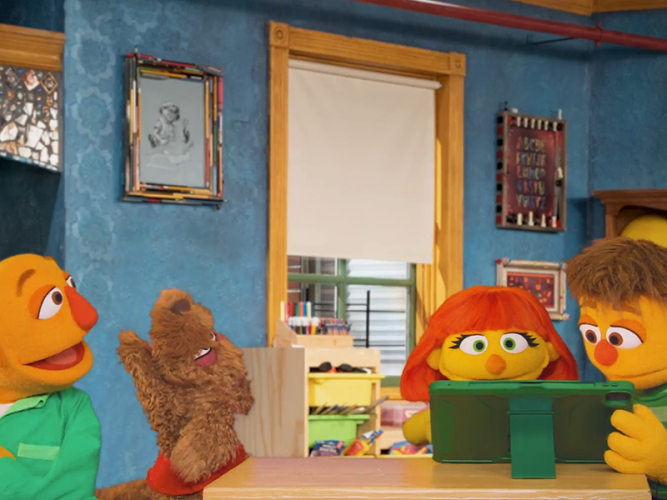
Switch It! Routine
Watch Julia, Sam, and their dad, Daniel, practice their family’s Switch It! Strategy, to transition out of screen time.
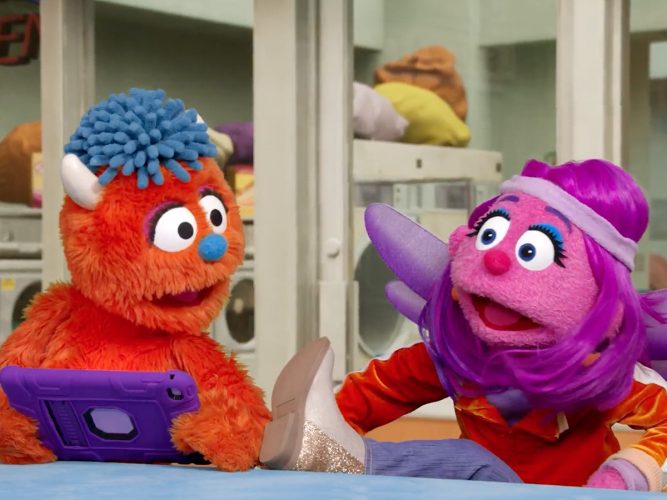
Bring the Energy
Watch Rudy’s Mommy Maggie help him transition out of screen time playfully.
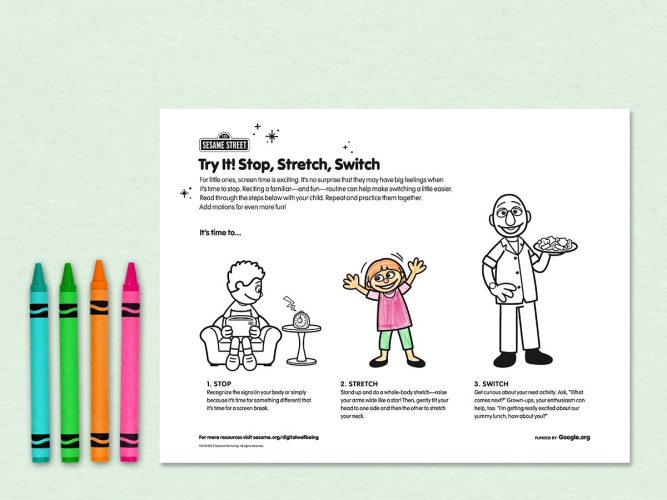
Try It! Stop, Stretch, Switch
Try this strategy to help little ones transition away from screen time.
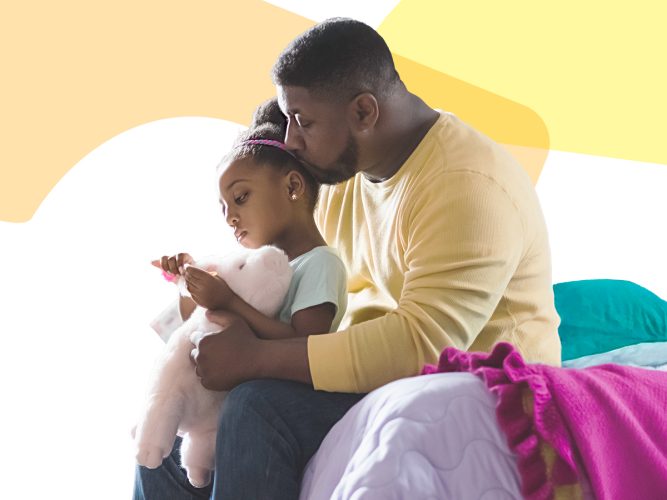
Soothing Without Screens
An article about working through big feelings and tough transitions without a screen.
5. Talk About It
You may be familiar with the cautionary advice that if you don’t listen to the little things children share, they won’t be sharing the big things — and that applies to our families’ digital well-being too.
Creating space in daily conversation about what children are interested in watching, playing, and seeing as they’re spending time with screens lets them know you care.
Watch as Rosita’s Mami learns more about the perilous dragon in the show Rosita’s watching. Notice how the two connect as Mami remembers a similar character in a book from her childhood.
To help children (and ourselves) practice more, you can use this printable Whole Body Listening. And check out the Talk…and Color: Adult-child coloring page for ideas on getting conversations started.
Want to learn more about how screens help your child see their world? Dr. Faith Rogow shares ideas to see Children as Family Storytellers.
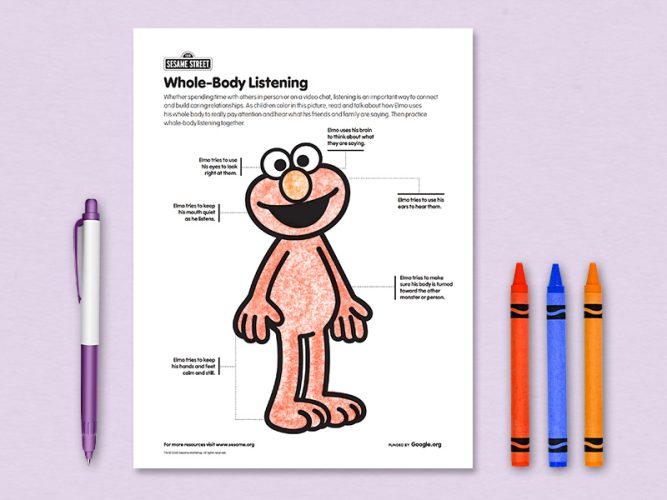
Whole-Body Listening
Whether children are interacting with others on a screen or in person, you can help them build their ability to focus, concentrate, and block out background noise and other distractions by helping them practice whole-body listening.
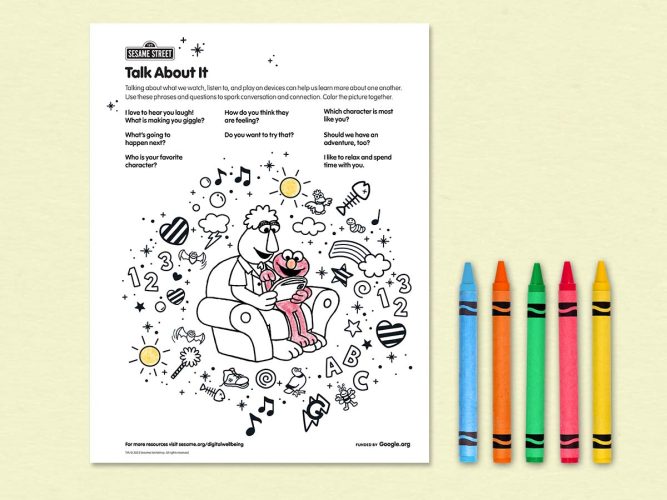
Talk… and Color! Adult-child Coloring Page
An activity with tools, tips, and playful ideas to empower families to foster digital well-being and develop healthy habits related to media and technology.

Children As Family Storytellers
With your help, children can use technology to become family storytellers.
6. Learn About It
Pop-ups never pop up at a good time! Add that to the frustration of thinking you finally got all those parental controls right… and you have a recipe for a bummer. That’s exactly the topic of Daniel and Elijah’s (Julia’s dad and Wes’ dad, respectfully) recent coffee meetup.
Digital well-being is about understanding and making choices about media as a part of family life, in order to learn, play, connect, relax, and feel closer to one another.
If you’re wondering what makes digital well-being different, check out the digital well-being page for more. To learn more about the six habits, watch our interviews with experts below:

Episode 1 – Ask an Expert: Choices
In the first episode of this six-part series, hear from an expert about how daily decision-making plays a role in family digital well-being.

Episode 2 – Ask an Expert: Notice
In episode two of a six-part series, explore strategies your family can use to build awareness about feelings, choices, and behaviors related to technology and media use.

Episode 3 – Ask an Expert: Making Connections
In episode three of this six part series, explore ways that families can use media and technology to connect and strengthen their relationships with one another.

Episode 4 – Ask an Expert: Talking About It
In episode four of this six-part series, explore the importance of open and honest communication around family media and technology use.

Episode 5 – Ask an Expert: Switching It Up
In episode five of this six-part series, explore strategies to support families in building flexibility and navigating transitions.

Episode 6 – Ask an Expert: Learn Along the Way
In this final episode, explore the importance of staying curious and maintaining a positive mindset surrounding digital well-being.
Screens are such an integral part of our lives, they can get tricky to manage — just like everything else in a busy day. But you’re learning, testing out rules for your family, and then adjusting as you go. Watch how these two families have managed their screentime needs and notice how both are different, but in many ways, the same.
You’re doing better every day just by continuing to try. Go you!
